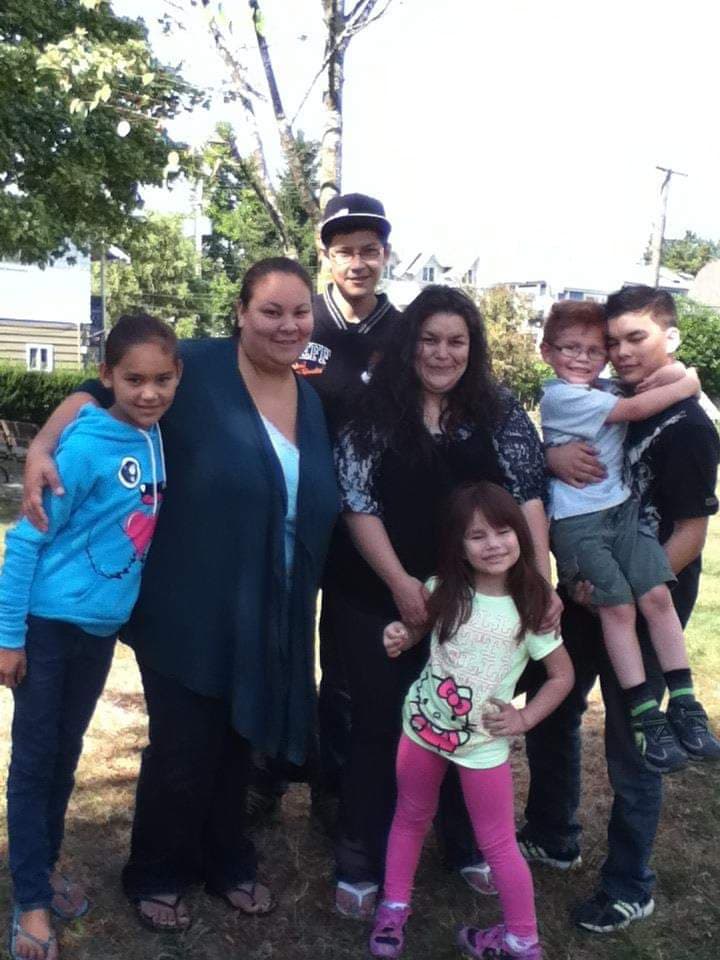This is part two in a three-part series about the disappearance and death of B.C. teen Noelle O’Soup. For part one, click here.

Warning: Details may be disturbing to some viewers. Discretion is advised.
It’s been more than a year since Noelle O’Soup walked away from the Port Coquitlam group home where she was placed by the province, and three months since her decomposed remains were finally discovered inside the unit of an unknown man in Vancouver.
And still, her extended family members, some of whom say they’d long lobbied for O’Soup and her siblings to come and live with them in Northern B.C., have very little in the way of answers, accountability, or access to any information involving O’Soup’s case file, from the Ministry of Children and Family Development.
“I was looking for a bigger home, a bigger place, so I could take this kid in,” Noelle’s uncle, Cody Munch, told Global News from his home in Fort St. John.
“And we were one week too late. Because by the time we found a bigger place with an extra room, we were one week too late,” explained Munch, of the efforts of him and his sister—both siblings of O’Soup’s mother, who struggles with addiction issues—to gain custody of their sister’s children.
Munch and his sister, Michelle, live in Fort St. John and Quesnel, respectively.
O’Soup and her siblings—who belong to The Key First Nation in Saskatchewan on their paternal side, and the Saulteau First Nations on their maternal side, were placed in foster or group homes across Metro Vancouver.
While in the foster system, the children were given little access to their extended family network of elders, cousins, aunts and uncles, according to Munch.
“The meetings we were having with (the children), they weren’t consistent enough. And they were too short. They didn’t even give the kids and us a chance to connect where we wanted to connect. It was more on their terms, rather than ours,” Munch explains of his supervised visits with his niece, for which he says he’d travel from Fort St. John to Metro Vancouver. The last time Munch would see his niece was July of 2020.
“We were being watched the whole time. We couldn’t really say much or talk to them much. Something was going on behind the scenes. I have no clue what. We kept asking questions, and we kept getting the run-around. Obviously, there was something going on because a little girl isn’t going to run away, and think East Hastings and Heatley (Avenue) is her best option,” Munch said.

We now know that’s where O’Soup, who was just 13 years old when she vanished from the care of the Ministry of Children and Family Development, would lay dead and undetected for months, inside a unit of a privately-owned single-room occupancy building, despite even the sudden death of its tenant, a man in his 40s, alongside the decomposing remains of another unidentified female in her 30s.
Her remains, and those of the other female, were finally discovered on May 1. The deaths of both women are considered suspicious and under investigation by the Vancouver Police Department’s Major Crime Section.
The sudden death of the male tenant is not considered suspicious, and investigators aren’t publicly identifying him. The Vancouver Police Department won’t comment on if he’s being investigated in connection to these suspicious deaths, or any others. The BC Coroner’s Service says an investigation into the cause and manner of all three deaths is still underway.
Even after failing to meet its most basic mandate of protecting a child in its care, the Ministry of Children and Family Development refuses to provide answers to even the most basic of question posed publicly by Global News, and privately by O’Soup’s family. They refused to even confirm that O’Soup was, indeed, cycling through the foster system at the time of her disappearance and subsequent death.
“This is a terrible tragedy and our hearts go out to the child’s family and community,” said the Ministry of Children and Family Development, in a written statement, adding the Minister of Children and Family Development, Mitzi Dean, was unavailable for an interview.
“The only step forward we were given to review Noelle’s files as she was in the care of the Ministry of Children and Family Development was to file a Freedom of Information request, to have her files released to us,” said Olivia Louie, Noelle’s cousin.
“She was put in a foster home that was not capable of caring for her in the way that she needed. She wasn’t given the supports that she needed,” added Louie.
“Instead of being placed in a situation that was more specialized, and able to care for Noelle, she was placed in a group home, which provided little to no support, where she was bullied and didn’t feel safe. And so, she left.”

Roslyn Chambers, a child protection lawyer who’s witnessed the failures and the fallout of the province’s foster care system, says O’Soup’s case is, sadly, not surprising.
“I would say she was failed, simply because she was in a group home that was inadequately staffed. Inadequate according to the services that she needed. And children that run away — there’s usually a reason children run away. So, what was the reason she ran away from the group home?” Chambers asked.
Chambers emphasized how vital it is to keep children in the care of the Ministry of Children and Family Development, particularly Indigenous children, with extended family and close to their own culture, rather than in foster or group homes, whenever possible. But, in British Columbia, that too often doesn’t happen.
“It can take months. I’ve seen where it can take nine months for a child to go to her aunt—it makes no sense. But in five hours a child can go to foster care or a group home. So, it doesn’t make sense,” Chambers said of the process of placing a child in the care of the foster system with extended family.
“Historically, we know that institutionalizing Indigenous children doesn’t work. We’re still fixing that, decades later. So, it clearly doesn’t work.”


Munch, says the tragic case of his niece has a direct correlation to the Catholic Church’s historical abuses of Indigenous children committed at residential institutions and intergenerational trauma passed down from Noelle’s grandfather, to her mother, then finally to her.
“Intergenerational trauma gets passed down. It’s a ripple effect,” Munch explained.
“It started out with my father: he was placed in foster care when he was a kid. It went from my father, down to my sister, and now this kid. You know, we lost this kid. This kid should be playing in a park with her friends right now; she should be in high school right now, getting ready for her plans for life,” Munch said.
On the heels of the visit of Pope Francis to Canada last week and his unprecedented apology on behalf of the Catholic Church issued to Indigenous peoples on Canadian soil, Munch is part of a chorus of Indigenous voices calling for the Doctrine of Discovery to be rescinded.
The archaic Doctrine, which dates back to the 14th century, was used to justify colonization by European countries. It also set in motion the framework for the residential school system, and what would ultimately become Canada’s Indian Act.
“I don’t believe these foster homes are safe. To me, these foster homes are the new residential schools,” Munch insisted. “RCMP officers and the (Ministry of Children and Family Development) are just the new priests and the new nuns. Who can’t seem to do their jobs right.”
Munch believes his niece would still be alive today had she been in the care of her own extended family, adding he and other family members are still dealing with bureaucratic red tape when it comes to accessing and communicating with O’Soup’s siblings.
“I think these kids should be left in our Indigenous care. And, at the very least, somebody from our reservation. This stems from not having proper housing. Not having clean water on reservations. And it’s not only that but if you look at this visitor (Pope Francis) that came over here and apologized — there’s stuff that stems from way back, all the way until now,” Munch said, in reference to the Pope’s visit at the end of July.
Chambers says, at the heart of O’Soup’s sad story, is a displaced little girl who will never return home.
“She was probably feeling very abandoned, very left out, and very unimportant. How did that happen? How do we get to a point where a 13-year-old is never going back to her parents, her extended family, or her community? How did we get to that point?” Chambers asked aloud.
“She was a child. And she was failed by the system.”







Comments